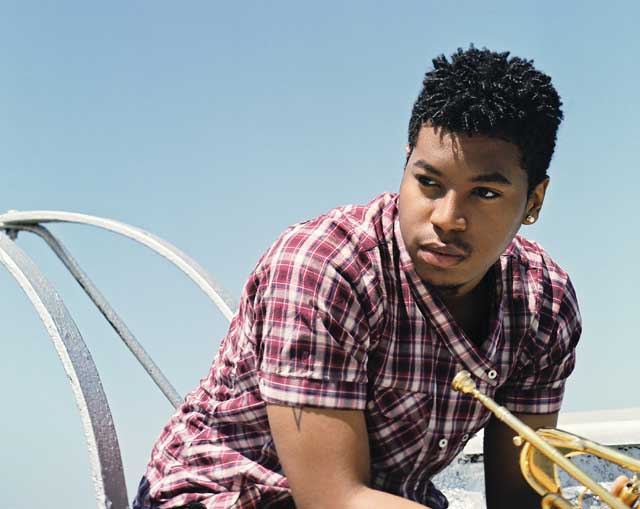My Way: Chistian Scott, jazz trumpeter
'The best thing I ever did was to listen to myself'

Your support helps us to tell the story
From reproductive rights to climate change to Big Tech, The Independent is on the ground when the story is developing. Whether it's investigating the financials of Elon Musk's pro-Trump PAC or producing our latest documentary, 'The A Word', which shines a light on the American women fighting for reproductive rights, we know how important it is to parse out the facts from the messaging.
At such a critical moment in US history, we need reporters on the ground. Your donation allows us to keep sending journalists to speak to both sides of the story.
The Independent is trusted by Americans across the entire political spectrum. And unlike many other quality news outlets, we choose not to lock Americans out of our reporting and analysis with paywalls. We believe quality journalism should be available to everyone, paid for by those who can afford it.
Your support makes all the difference.Christian Scott is a Grammy Award-nominated jazz trumpeter from New Orleans. He has just released his new album Yesterday You Said Tomorrow
What did you want to be as a child?
A boxer. Actually, I wanted to be Muhammad Ali. He was the epitome of masculinity and wasn't afraid to be vulnerable. Plus he was cool as hell.
What did you realistically think you'd end up doing?
I thought I'd be a boxer, especially as I came from a family of fighters, but then I fell in love with playing the trumpet. The first time I played publicly I was 12. I was at a club in New Orleans and my uncle [saxophonist Donald Harrison] called me up to play.
What were you doing in a club at the age of 12?
In New Orleans, things like that aren't seen as taboo.
What was it like playing with your uncle?
The best thing was learning the music from someone who had learnt from the great masters. I was protected and learnt without people taking advantage. The worst thing was that when I got out, I realised sometimes you have to learn things from people who take advantage.
You went to Berklee College of Music and studied professional music and film scoring. Was it worth it?
In two-and-a-half years I got two degrees. I was touring with groups, doing four or five gigs a day, and I still graduated, so for me it was worth it. A lot of musicians told me not to go to school and to get on the road. I went because I'd promised my mother.
Do you consider yourself successful?
I don't like to think of life in terms of that. One day is a good day; the next day there's a lot to do. Yesterday I did a BBC interview and I was on cloud nine. Then I went into a store in London to buy some loafers. I asked for a different size and the guy looked at me like, 'Whatever'. I asked him what made him think I wasn't going to buy the loafers, and he said, "You people never buy anything." I got the manager.
What's the best decision you've made?
To listen to myself. The further you get, the more people think they know better than you do.
Any regrets?
There is one. I was in a relationship with a girl and when it was over I realised I'd been used.
What motivates you?
My community and the idea that every day can be better than the previous day.
Who do you admire?
Hattie McDaniel, the first African-American to win an Oscar, for her role as Mammy in Gone With The Wind. She wasn't a stupid person; she knew what she was doing. Without condemning or condoning her, I admire her.
What's the best perk of your job?
This is going to sound slightly masochistic but when I play sometimes I cut myself. Most trumpeters don't get cut the way I do; they get little bruises and they try to numb the pain, but I don't. I let myself feel the pain because it reminds me what my people went through to get emancipation.
education@independent.co.uk
Join our commenting forum
Join thought-provoking conversations, follow other Independent readers and see their replies
Comments